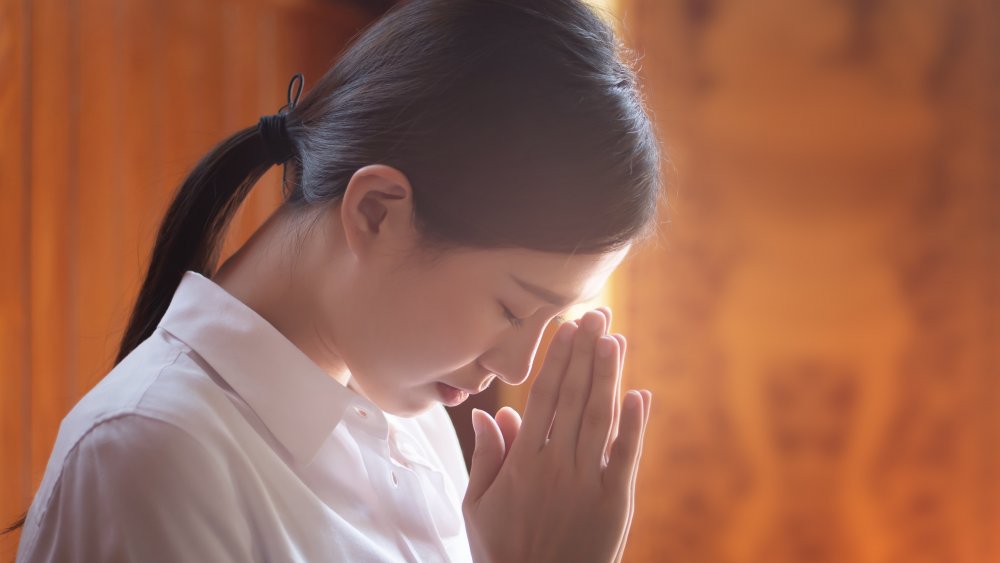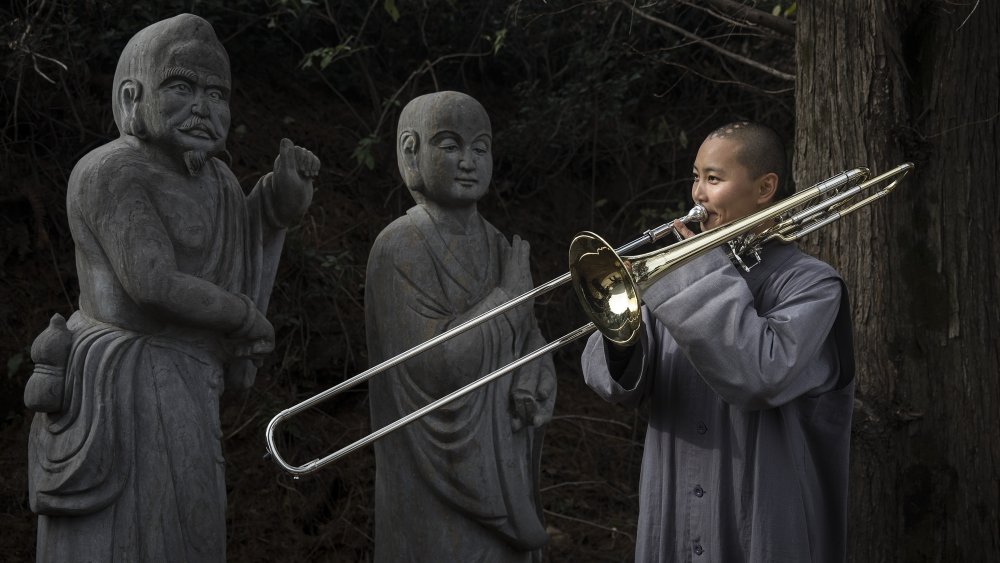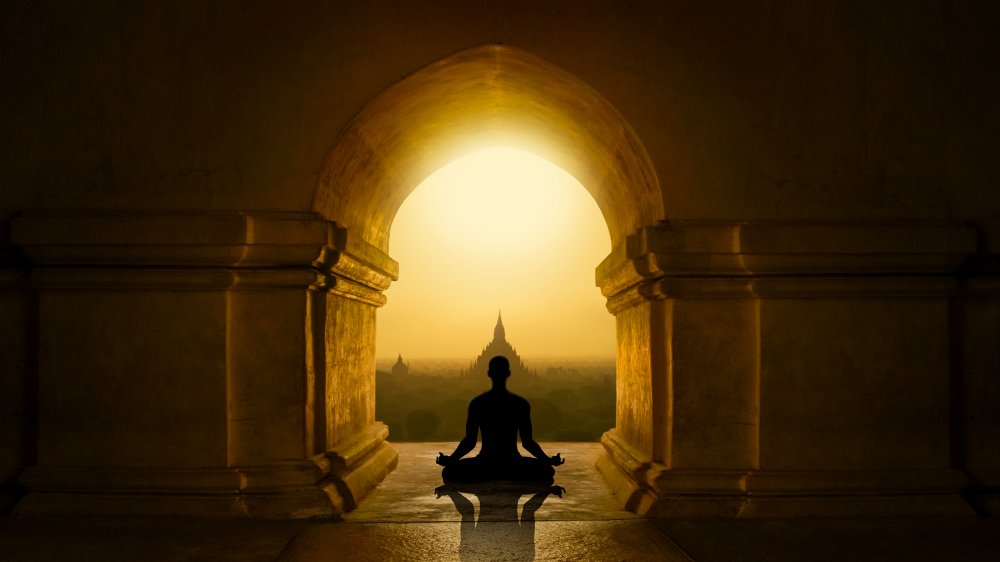The 5 Stages Of Discovering Your Personal Dharma (Purpose)
We may receive a commission on purchases made from links.
Do you get karma and dharma mixed up? Well, you're not alone, as both terms frequently get tossed around by people with only a partial understanding of what they mean. According to professor Gavin Flood, Academic Director of the Oxford Centre for Hindu Studies (via BBC), karma is a Sanskrit word meaning "action" and refers to the concept that everything you do, whether virtuous or evil, will invoke an equally positive or negative reaction from the universe. Dharma, on the other hand, means something more along the lines of duty, virtue, and morality, and is something that you owe to the universe. Your life's purpose, as it were, although not in the personal fulfillment sense of "I was born to be rich/famous/rule the world." More like "I was meant to teach, to be a caregiver, to provide food, to fix things, to seek justice." If you follow your dharma, then you'll reap good karma, but if you go against it, your karma's going to need a few repairs.
So how do you go about discovering what path your dharma should be leading you down? Sometimes the universe can be a little obscure with the hints it provides. We spoke with bestselling author and public speaker, Sahara Rose, who is host of the Highest Self podcast and author of the upcoming book, Discover Your Dharma: A Vedic Guide to Finding Your Purpose, and she revealed that dharma discovery comes in stages — five of them, to be precise.
Self-awareness
The first step in discovering your dharma arrives when you come to the realization that there has to be more to life than just getting by day to day. You start to feel aware that you must have some sort of higher purpose in life, but you also know that you have no clue what that purpose might be. You feel the need for a radical change of some sort, and Rose reveals that it is "through pain or numbness [that] you are called to take action and transform your life." This driving need to make a change is, she goes on to say, "where the seed of dharma is planted."
Self-improvement
Here's where things start to get fun. Called to change, you make it your life's mission to work on yourself and be the best you can be. You may start to work out, maybe practice some yoga. You'll also probably start reading self-help books or articles and maybe listen to some motivational TED talks. You'll also give meditation a go, maybe making use of an app to help you out. Whether or not any of these particular things take, you've already begun moving away from old bad habits, ones that you now recognize may have been holding you back from ... something (which is still TBD). This stage, according to Rose, is "focused on the physical and mental level more than the soul level," and yet it is an important stage nonetheless, since "this is where the seed of dharma is watered."
Awakening
At some point (this point, actually) along your journey to self-improvement, you shift your focus to self-knowledge instead. As Rose describes the process, "You begin to realize that you are not your body or your mind, but rather a soul living in a body with a mind." You experience a desire to learn more about spiritual topics, so you may delve more heavily into yoga or meditation, or take up the study of Ayurveda, energy healing, or even astrology. Rose says that once you begin to expand into the spiritual realm, "Your entire worldview shifts as you become aware of the limiting beliefs passed down inter-generationally and begin to do the healing work." To continue her plant analogy, she says, "This is when the seed of dharma sprouts."
Higher consciousness
At this point — well, frankly, you may be in somewhat of a danger zone. As Rose describes it, "You are out of the spiritual closet and no longer feel the need to hide your beliefs to be taken seriously. You have found the practices that resonate with you and begin sharing them." Therein lies the problem, since unasked-for sharing can often come across as proselytizing. If you are careful not to overshare, however, or to imply that your beliefs are superior to everyone else's, you may be able to practice your new lifestyle without alienating all of your friends and family members. This should be the point where "the dharma sprout begins to grow."
Stepping into your dharma
Once you are truly in tune with your spiritual side, you should be able to get a glimpse (at last!) of your life's purpose, your "sacred mission," as it were. As Rose says, "your worldview transitions from me to we. Your spiritual practice becomes something so much greater than you; it becomes the foundation from which you heal humanity." Once you realize that your purpose, whatever it may be, is always going to involve being of service to others in some form, you'll know the meaning of true joy, and you will arrive at "the space in which you truly embody your dharma and the truth of who you are."
While Rose did not extend the plant analogy to this fifth stage, we're going to go out on a limb (or climb a trellis) here and say: This is where your dharma comes into full bloom.





